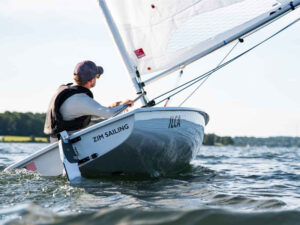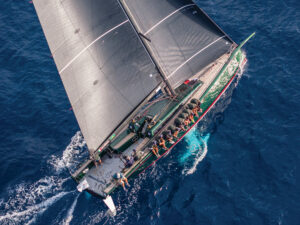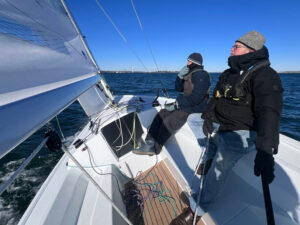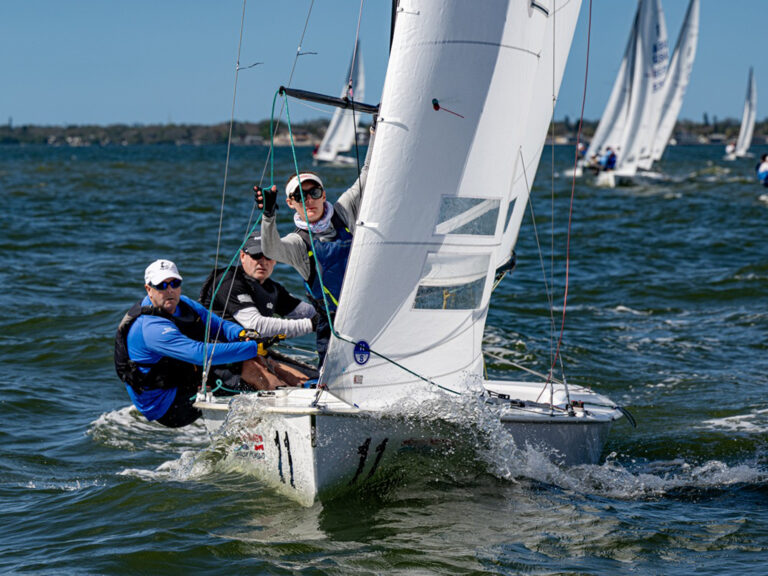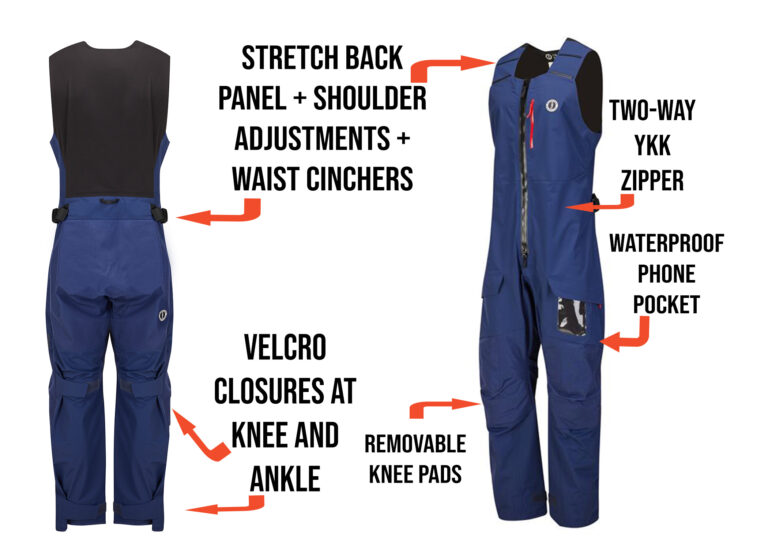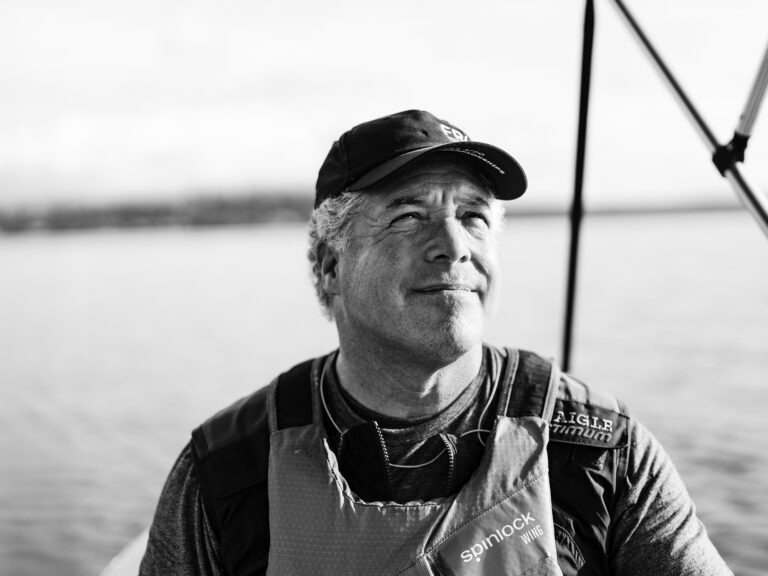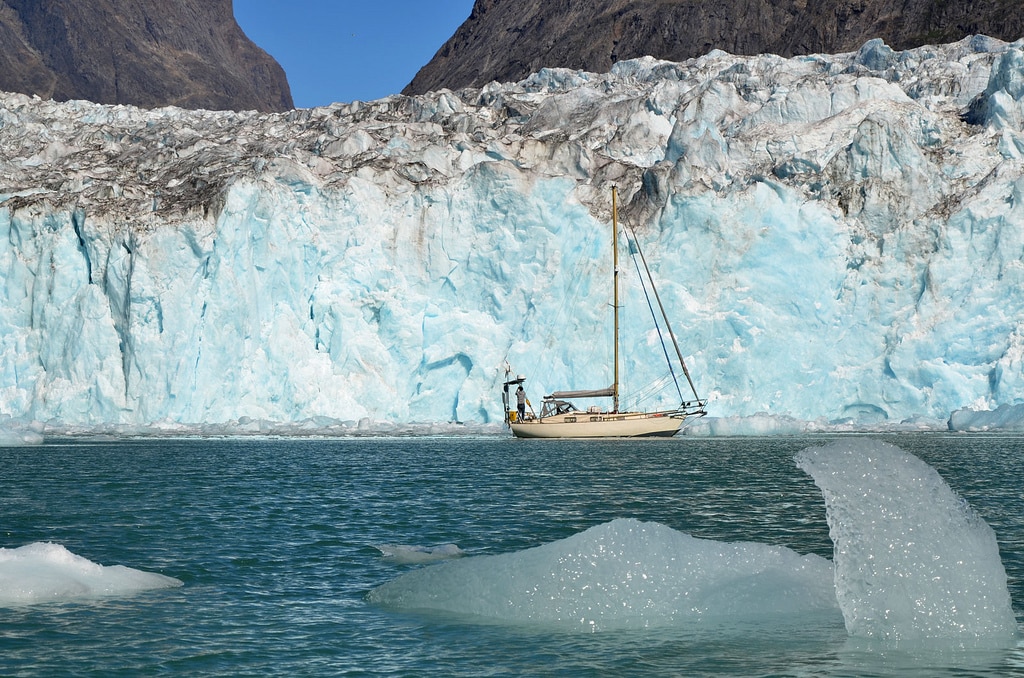
Northwest Passage
There is no question that global warming, on the whole, threatens all sorts of catastrophe for the earth and its inhabitants. But any time there is dramatic change there is also dramatic opportunity. Take the Northwest Passage, which connects the Atlantic and the Pacific. While scientists have been tracking, with growing alarm, the ever-shrinking ice cap, cruising sailors in growing numbers have been exploiting the accompanying increase in open water. Yes, for anyone who has dreamed of sailing the Northwest Passage, global warming is your friend.
Here’s a graphic depiction, just released by NOAA, of the shriking Arctic ice cap, which hit a record low this summer:
That video is a harbinger of bad things to come for the planet as a whole. But it also explains why sailor Matt Rutherford was able to become the first to solo circumnavigate the Americas, which was a truly epic voyage, on a level with Chichester and Knox-Johnston.
And earlier this month it allowed three sailors to complete the northernmost voyage ever through the Northwest Passage, on a Monsun 31, built by Hallberg-Rassy in 1976, called _Belzebub II_.
Here’s the route Belzebub II went for:
And here is the description of what they set out to do:
We are attempting a unique route through the Northwest Passage that has never been achieved before. We plan on going much further up the West Coast of Greenland to the highest latitude possible before turning south following the coast of Ellesmere Island, and instead of crossing Devon Island to the south by entering Lancaster Sound to reach Resolute, which is the”traditional route,” we will attempt to pass Devon Island to the North through Jones Sound, then join up with Norwegian bay to meet Northumberland Sound to sail down to Resolute from where we will evaluate the ice charts and if possible continue along the Viscount Melville Sound and attempt to cross the McClure strait.
Now, even with lots of global warming and a record ice shrinkage this year, the question of whether Belzebub II would be able to transit the McClure Strait, and pass north of Banks Island (instead of going south via the safer Prince Of Wales Strait), was fraught with risk. And that’s what makes what’s happening in the Northwest Passage for sailors so exhilarating and intriguing.
We live on a planet where there is very little that is undone, unknown, and unexplored. A planet where it is rare that you can put yourself and your boat in a seascape that is so remote that there is little hope of rescue or assistance, and so unstable and unpredictable that your decisions truly can determine whether you survive or not. That is the essence of advanture, and that is what the sailors of Belzebub II found during their voyage through the Northwest Passage.
Here is a video of the decision to go north of Banks Island, with a very narrow ice window:
You can sense the trepidation and the excitement, because they don’t actually know how it will all turn out. When is the last time, if ever, that you experienced those feelings?
In the end, they made it through to the Beaufort Sea. But even there, it’s not like life got simple. I watch them poking their way into a thick ice floe field and marvel at the audacity and freedom of being aboard a sailboat in that remote wilderness. Suddenly seeing a polar bear only emphasizes the wonder and surprise that can result.
I am not in any way endorsing or applauding global warming. I think it is a human-made catastrophe that we are doing way too little to change. But there is no question that changes in the planet mean changes in the places that sailors can dream about. And for the crew of Belzebub II, I have nothing but admiration, and a little (okay, a lot) of envy. What sailor wouldn’t want to make a first voyage into the unknown? And what other voyaging opportunities will climate change bring?

